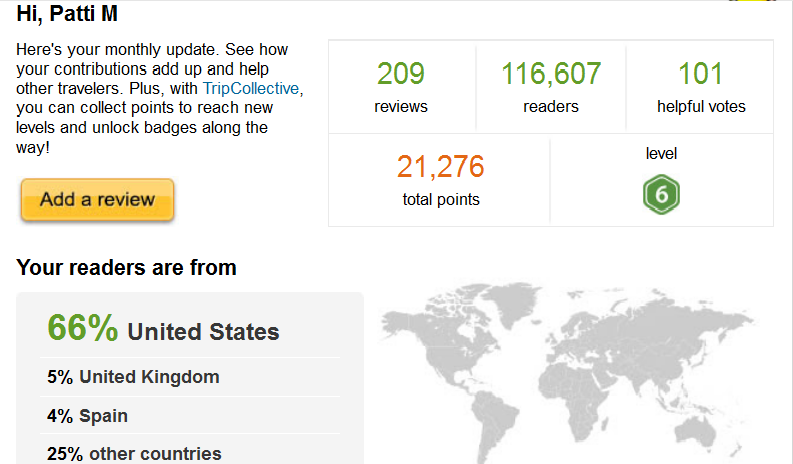
The holiday season often brings joy, togetherness, and an increase in spending, Americans planned to spend an average of $2,100 in 2024, a 7% increase from the previous year. This included gifts, travel, decorations, and celebratory meals, making it a financially challenging time for many. Especially retirees living on fixed incomes.
According to recent data, 31% of retirees reported spending beyond their means during the holidays, a rise from 27% in 2022.
For retirees, the festive season’s financial strain can overshadow its joys, underscoring the importance of adopting practical budgeting strategies. Careful planning, leveraging discounts, and focusing on meaningful but cost-effective ways to celebrate can make the holidays enjoyable without compromising financial stability.
With the right approach, retirees can navigate the holidays with peace of mind, ensuring the season remains festive and stress-free.
Managing Holiday Finances: Practical Tips For Retirees
The holidays are a season of joy, but for retirees living on fixed incomes, they can also bring financial challenges. According to recent data, Americans planned to spend an average of $2,100 during the holidays in 2024, with significant portions going to gifts, travel, and celebrations.
For retirees, this surge in spending can disrupt carefully managed budgets. However, with a thoughtful approach, it is possible to embrace the festive spirit without financial stress. By focusing on practical and actionable strategies, retirees can make the most of their resources while enjoying a meaningful holiday season.
1. Create A Detailed Holiday Budget
Making a holiday budget is the foundation of effective holiday financial management. By mapping out every expense, retirees can avoid surprises and maintain control over their spending.
- Assess Your Finances: Start by evaluating your total disposable income for the holiday season, including any savings specifically set aside for this purpose. Subtract regular expenses to determine what’s available for holiday spending.
- Categorize Your Costs: Divide your budget into categories such as gifts, travel, decorations, meals, and entertainment. Assign realistic limits to each category based on your priorities.
- Set Priorities: Decide what matters most to you during the holidays. For example, you may prioritize gift-giving for grandchildren while scaling back on decorations.
- Track Spending: Use tools like budgeting apps, a spreadsheet, or even a simple notebook to monitor your expenses. Review your budget weekly to ensure you’re staying on track.
- Plan for Unexpected Costs: Set aside a small buffer (e.g. 10% of your total budget) to cover unplanned expenses, such as last-minute gifts or travel changes.
2. Embrace Thoughtful Gift-Giving
Meaningful gifts do not have to be expensive. Retirees can find ways to give presents that resonate emotionally without straining their budget.
- Handmade Gifts: Personal creations often mean more to the recipient than store-bought items. Knitted scarves, baked goods, homemade candles, or a scrapbook filled with cherished photos are gifts that hold sentimental value while being cost-effective. Platforms like YouTube offer tutorials to create professional-looking handmade items at home.
- Experiential Gifts: Giving the gift of time or experiences can be incredibly valuable. For instance, offering to babysit grandchildren, preparing a favorite meal for a loved one, or organizing a special outing can create lasting memories.
- Gift Exchanges: To reduce the burden of buying multiple gifts, retirees can suggest family-wide gift exchanges like Secret Santa or white elephant. These formats ensure that everyone receives something thoughtful while limiting the number of gifts needed.
- Shopping Smart: Retirees should take advantage of holiday sales and online deals. Black Friday and Cyber Monday offer significant discounts. Signing up for newsletters from favorite retailers or using cashback websites can also help save money.
3. Plan Holiday Meals Wisely
Holiday meals often contribute significantly to seasonal expenses. However, careful planning can help keep these costs under control while still creating memorable feasts.
- Potluck Gatherings: Hosting a potluck reduces the financial burden on a single person. Each guest brings a dish, allowing for a diverse and plentiful meal without overwhelming costs. Coordinating dishes in advance prevents duplication and ensures a well-rounded menu.
- Seasonal Ingredients: Seasonal produce like sweet potatoes, cranberries, and squash is typically less expensive and widely available. Retirees can design their menus around these affordable options while adding holiday flair with spices like cinnamon or nutmeg.
- Meal Prep and Leftovers: Preparing meals in advance and repurposing leftovers can stretch food budgets further. For example, turkey leftovers can be used for sandwiches, soups, or casseroles, minimizing waste.
- Discount Groceries: Look for discounts at local grocery stores or online. Many supermarkets offer loyalty rewards, senior discounts, or holiday promotions that can significantly lower costs.
4. Utilize Senior Discounts And Deals
Senior discounts are available in numerous industries and can make a notable difference during the holiday season.
- Retail Discounts: Many major retailers offer discounts for seniors, ranging from 5% to 15% off purchases. For example, Kohl’s offers special discounts for those aged 60 and older on designated days.
- Travel Discounts: Seniors planning holiday trips should inquire about reduced fares from airlines, bus services, and train operators. Websites like AARP provide lists of companies that offer senior discounts.
- Dining Deals: Many restaurants feature senior menus with reduced prices. Planning a holiday meal out? Choose a venue that caters to retirees with budget-friendly options.
- Coupon Apps and Loyalty Programs: Apps like Honey and Rakuten automatically apply discounts and cashback opportunities, ensuring retirees don’t miss potential savings.
5. Consider Alternative Travel Plans
For retirees, travel during the holiday season can quickly become one of the most significant expenses. However, strategic decisions can lead to considerable savings.
- Flexible Dates: Travel demand peaks around holidays, driving up prices. By traveling a few days before or after major holidays, retirees can access significantly lower fares.
- Book Early: Airlines and hotels often offer early bird deals, which are ideal for retirees who can plan their schedules months in advance. Using flight comparison tools like Google Flights or Skyscanner ensures the best prices.
- Road Trips: For shorter distances, driving can be more economical than flying. Retirees can reduce fuel costs by using gas-saving apps like GasBuddy to find the cheapest stations along their route.
- Stay Local: Celebrating with family and friends nearby not only saves money but also reduces the stress associated with long-distance travel.
6. Engage In Free Or Low-Cost Activities
The holidays are about creating memories, and many meaningful experiences cost little to nothing.
- Community Events: Many towns host free holiday concerts, tree-lighting ceremonies, or festive markets. Retirees can enjoy these events with family or friends, soaking in the holiday spirit without spending a dime.
- Home Gatherings: Hosting an at-home celebration can be equally enjoyable. Plan movie nights with classic holiday films, organize craft sessions for making ornaments, or host a board game tournament.
- Volunteering: Participating in charitable activities like serving meals at a shelter or collecting donations can be incredibly rewarding. It also reinforces the true spirit of the season—giving back.
- Nature Walks: Retirees can enjoy scenic walks or hikes through decorated neighborhoods or local parks. This simple yet meaningful activity encourages physical activity while celebrating the festive atmosphere.
7. Set Expectations With Family And Friends
Clear communication with loved ones ensures the holidays remain stress-free and within budget.
- Discuss Gift-Giving Plans: Many families feel obligated to exchange extravagant gifts. Retirees can propose alternatives like setting spending limits, focusing on children only, or skipping material gifts in favor of shared experiences.
- Share Your Budget Constraints: Being upfront about financial limits can encourage others to be more mindful of their own spending and foster understanding.
- Plan Together: Organize family gatherings collaboratively, sharing costs for meals or decorations. Involving everyone in the planning process not only reduces financial strain but also builds anticipation and excitement.
- Encourage New Traditions: Suggest traditions that are less focused on spending, such as baking cookies together, playing holiday-themed games, or writing letters to loved ones.
Wrapping Up
In embracing the holiday season, retirees can find unique joy in focusing on simplicity, meaningful connections, and creating lasting memories rather than material extravagance. Exploring community traditions, such as attending local cultural events or crafting new family rituals, can provide fresh and enriching experiences.
With thoughtful planning and an emphasis on the spirit of togetherness, the holidays can become a time of fulfillment that transcends financial considerations.










 Instagram Feed
Instagram Feed








 #postcardsfromthewo
#postcardsfromthewo





 New post on blog, link in
New post on blog, link in 






Leave a Comment